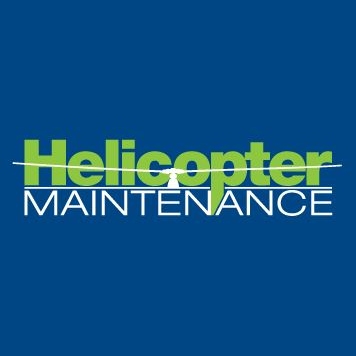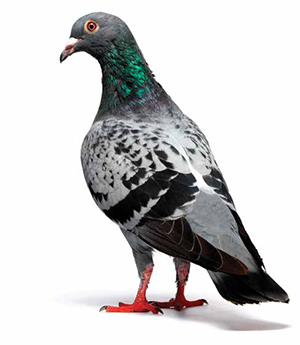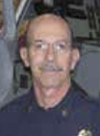
If You Want to Fly Like an Eagle, Don’t Get Pigeon Holed


To be “pigeon holed” means to be categorized or compartmentalized. The term is from the nest boxes where pigeons have been raised and which people have built for much of the last 10,000 years. Pigeons have been raised for utility purposes such as messaging and meat (squab is a delicacy in many places, even though some people think of pigeons as flying rats), for sport (racing) and just by breeders who like certain characteristics (fancy pigeons). This is like helicopters in that we have utility ships, corporate and off-shore carriers, HEMS and rich guy toys (the fancy ones). Although it is nice to be able to classify things by putting them in a compartment like a pigeon hole, it might not be a good idea to let that happen to us as maintenance technicians.
The term “think outside the box” is popular with managers from all sorts of commercial enterprises. It’s because by approaching a problem from perspectives we might not be familiar with or comfortable with, we can sometimes find solutions that would otherwise elude us. This expression likely comes from the “nine-dot box puzzle” which is presented here. Give it a try. You need to connect all nine dots by using only four straight lines, and you may not lift your pencil or pen from the paper once you start. You already have a clue because, of course, you are thinking “outside the box.” The puzzle is designed to push you into thinking that you need to stay within the confines of the dots. You can only solve it if you extend the lines beyond the dots, outside the box so to speak. (You can turn to page 36 for the solution to the puzzle.)
I am fortunate in that where I work I have specialists who include electricians/avionics wizards, sheet metal technicians, component overhaul/NDI specialists, engine specialists, and of course, people who might dip into any of these specialties when outside of the hangar and who are great “line” mechanics.
I’ve never forgotten why I had such a good time in A&P school while learning the basics to do all of that. Having a broad background doesn’t mean you can’t be a specialist. Getting that education changed my professional life and my life outside of work. I haven’t taken a car I’ve owned to a shop for repairs in the last 30 years (except mufflers — I don’t do exhaust systems). I might not do carpentry, household wiring or plumbing like a pro, but I’ve built two houses and done a lot of those things. I wouldn’t have had the confidence needed for these endeavors if I hadn’t had my A&P training. I’ve made mistakes and busted my knuckles, but when I was done I knew what I had and the next time it was much easier.
It’s only normal that in a complex world it is harder than ever to be good at many things. Our electricians have enough work that they will never have to buck another rivet. Sheet metal folks don’t have to pull wires or install 50 different kinds of connectors. Being able to do the other jobs makes you better at your specialty and makes it easier to think outside the box that might be too comfortable to be in. Sometimes someone finds a sticky problem solution that comes from another discipline and makes everyone do a collective forehead slap and ask, “Why didn’t I think of that?” I’ve done a few things that I thought were really good ideas that people still make fun of me for doing. Those are the “What was I thinking?” moments. I have fewer of those than I would have if I were not trained in a trade that covers almost all of the systems that allow aircraft to fly and navigate.
In addition to the stuff that everyone who is an A&P should know, there is the hard science side of what we do. Physics, mathematics, chemistry, business management, communications, human behavior, biology and a few other “ologies” enrich our abilities to work in aviation. You might be the best mechanic around, but if you can’t communicate clearly or you limit yourself because you see no reason to branch out, then you will limit what you are capable of doing. (For example, you really like engine work but airframes bore you, so you jump on the engine inspection each time a ship rolls in.)
Many would say Leonardo da Vinci might have been the most intelligent man. We can never know if that is true but we can be sure that he likely had more curiosity about everything in his world than anyone who has ever lived. We can’t be dismissive by saying that things were simpler then so it was easier to be good at more things than today. We should all try and be curious about the things that we work with every day but of which we don’t have a solid understanding. If it’s one thing Da Vinci wasn’t, it was pigeon holed. We should never pass up the chance to train on something new, even if it isn’t something we don’t particularly want to do. Somewhere, somehow, it will serve us.
 Jon Robbins has been an A&P mechanic for 33 years. He holds IA and private pilot and instrument airplane ratings. He supervises the helicopter maintenance program at CAL FIRE. Send e-mail to jon.robbins@fire.ca.gov.
Jon Robbins has been an A&P mechanic for 33 years. He holds IA and private pilot and instrument airplane ratings. He supervises the helicopter maintenance program at CAL FIRE. Send e-mail to jon.robbins@fire.ca.gov.
